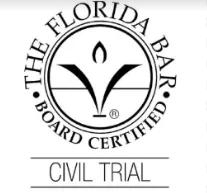
Navigating a Medical Malpractice Claim: Understanding Florida’s Statute of Repose
Table of Contents
When a patient suffers harm because of a doctor’s mistake, delayed diagnosis, or surgical error, the road to justice can be complicated. Medical malpractice claims in Florida are governed by strict deadlines and procedural requirements, the most rigid of which is the Statute of Repose. This rule can bar a claim entirely, even if the victim didn’t know about the malpractice until years later.
Understanding how the Statute of Repose works, how it differs from the Statute of Limitations, and when exceptions apply is essential to preserving your right to compensation. This guide explains those distinctions and how an experienced Florida medical malpractice lawyer can protect victims of medical negligence.
What Is Florida’s Statute of Repose?
The Statute of Repose sets the absolute deadline for filing a medical malpractice lawsuit, regardless of when the injury was discovered. Under Florida Statute §95.11(4)(b), no medical malpractice action can be filed more than two years after the date of the alleged act, omission, or negligence, except in limited cases of fraud, concealment, or misrepresentation.
That means even if a patient only discovers the malpractice years later, they may be unable to file a lawsuit if four years have already passed since the medical error occurred.
The only exceptions extend the deadline to seven years total if the healthcare provider actively hid the mistake or misled the patient about their condition.
Statute of Repose vs. Statute of Limitations
These two deadlines are often confused but serve different purposes:
- Statute of Limitations: The time limit begins when the injury is discovered or should have been discovered through reasonable diligence. In Florida, medical malpractice victims generally have two years from that discovery date to file a claim.
- Statute of Repose: This acts as a final cutoff that limits how far back a malpractice claim can reach, even if the patient didn’t know about the wrongdoing.
Example:
If a surgeon leaves a medical instrument inside a patient in 2019 but the patient doesn’t experience symptoms until 2024, the two-year repose period would have already expired. The claim would likely be barred unless concealment or fraud can be proven.
The Pre-Suit Requirements in Florida Medical Malpractice Cases
Before a lawsuit can even be filed, Florida law requires a pre-suit investigation process under Chapter 766. The victim’s attorney must:
- Conduct a reasonable investigation to confirm there’s a basis for the claim.
- Obtain a verified written medical expert opinion supporting the claim.
- Provide the potential defendants with a Notice of Intent to Initiate Litigation, giving them 90 days to respond before a formal lawsuit is filed.
These steps are complex and time-sensitive, and missing even one can jeopardize a valid claim. A Florida medical malpractice attorney ensures compliance with all procedural rules while preserving evidence and securing expert testimony.
Common Examples of Medical Malpractice in Florida
Medical malpractice can take many forms, including:
- Surgical errors, leaving instruments inside a patient, operating on the wrong site, or failing to control bleeding.
- Medication mistakes, incorrect dosages, wrong prescriptions, or failure to recognize drug interactions.
- Misdiagnosis or delayed diagnosis, especially for cancer or life-threatening conditions.
- Birth injuries, trauma to newborns caused by negligence during labor and delivery.
- Anesthesia errors, failure to monitor oxygen levels or allergic reactions.
- Failure to obtain informed consent, performing a procedure without disclosing the risks.
Each of these categories may fall under the statute of repose limitations, which makes early consultation with a lawyer crucial.
Exceptions to Florida’s Statute of Repose
Florida law recognizes limited exceptions to the four-year deadline:
- Fraud, Concealment, or Misrepresentation If a healthcare provider intentionally hides the mistake, for example, falsifying medical records or failing to disclose a surgical error, the statute extends to seven years.
- Minors For children injured by medical negligence before age eight, the statute of repose does not bar claims filed before their eighth birthday, even if more than four years have passed.
- Continuous Treatment In some cases, if a negligent act was part of ongoing treatment, the repose period may begin when the continuous care ended rather than the initial mistake.
Because these exceptions are narrow and fact-specific, a Florida medical malpractice lawyer should review every detail before assuming a deadline applies.
How the Statute of Repose Affects Victims
The statute can be harsh, especially for patients whose injuries are not immediately apparent, such as cancer misdiagnosis, surgical mistakes, or radiology errors that take years to surface. Victims often feel blindsided when told their claim is “too old” to file.
That’s why early detection and swift legal action are essential. The clock may already be ticking even before you realize malpractice occurred.
Related Practice Areas
Medical malpractice claims often overlap with other serious injury cases in Florida, such as:
- [Florida Birth Injury Lawyers], for labor and delivery negligence.
- [Florida Surgical Error Attorneys], for mistakes in the operating room.
- [Florida Cancer Misdiagnosis Lawyers], for delayed or failed diagnoses.
- [Florida Wrongful Death Lawyers], when malpractice leads to fatal outcomes.
Each of these practice areas involves strict timelines and expert evidence, both of which demand the attention of a seasoned personal injury firm.
Why Legal Representation Is Critical
The Statute of Repose and pre-suit requirements make Florida’s medical malpractice system one of the most complex in the nation. Insurance companies and hospital defense lawyers know how to use these deadlines to their advantage.
A Florida medical malpractice attorney from Kogan & DiSalvo can:
- Investigate your claim and identify all responsible providers.
- Secure expert medical testimony supporting negligence.
- File all notices and paperwork before legal deadlines expire.
- Fight to recover full compensation for your losses.
Timing is everything, and early legal intervention is your best chance at success.
Call Kogan & DiSalvo Personal Injury Lawyers
If you believe medical negligence caused your injury or a loved one’s death, don’t wait. The Statute of Repose could limit your ability to recover damages even before you realize malpractice occurred.
Call (561) 286-8132 today to schedule a free consultation with Kogan & DiSalvo Personal Injury Lawyers. Our attorneys handle medical malpractice and personal injury claims statewide from offices in Boca Raton, Delray Beach, Plantation, Palm Bay, St. Petersburg, Vero Beach, North Miami Beach, Boynton Beach, Fort Lauderdale, Lakeland, Stuart, Tampa, and West Palm Beach.
 (800) 707-9111
(800) 707-9111
 Call
Call



















